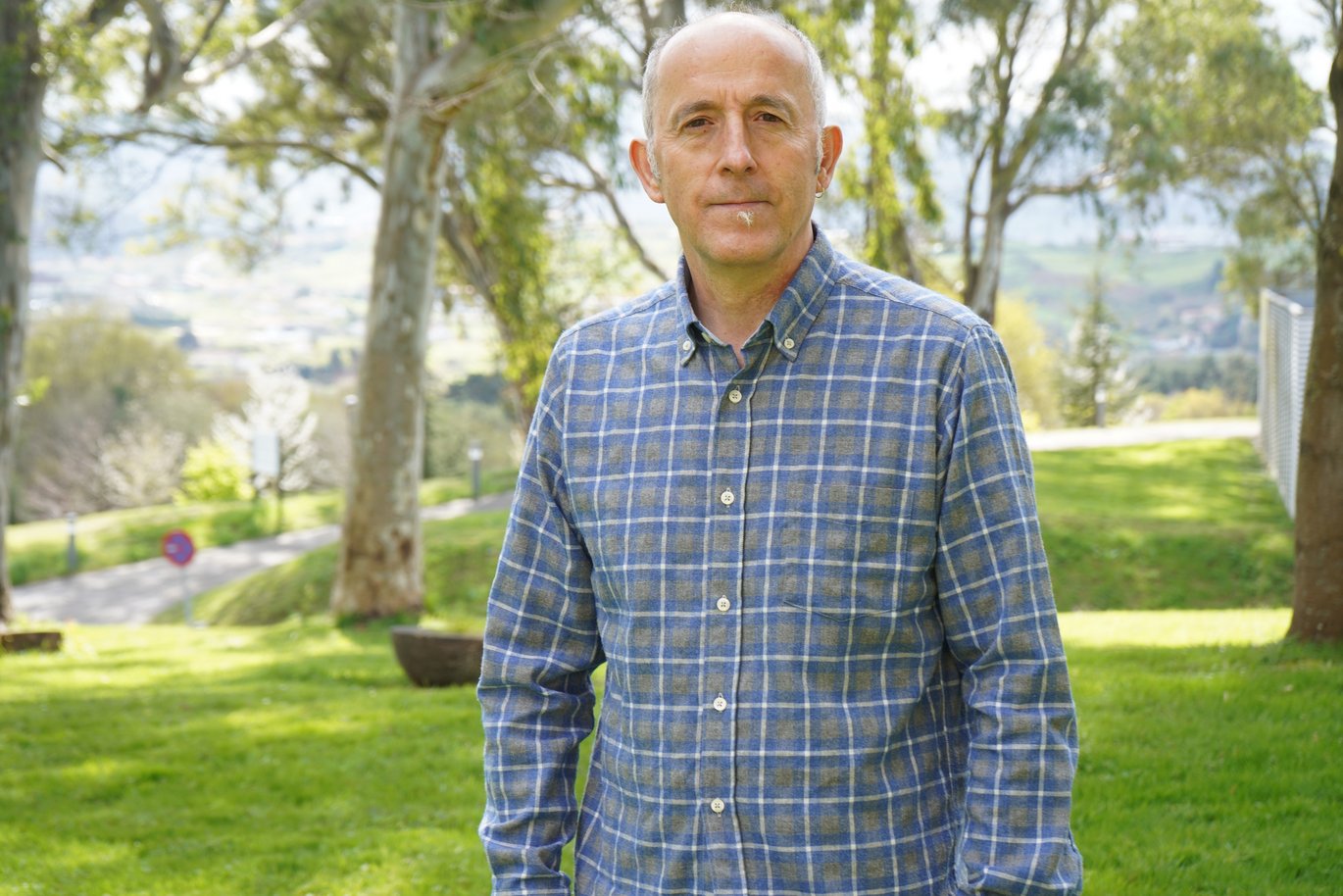Visiting Researcher - Edorta Arana Arrieta
Edorta Arana Arrieta, senior lecturer at the University of the Basque Country has been visiting the Department between September and December 2021 to collaborate on research regarding TV scheduling in the digital era.

Earlier this year, we started to present new colleagues here at the department of Media and Journalism Studies. This week we talked to Edorta Arana Arrieta, senior lecturer at the University of the Basque Country. He has been a visiting scholar at the Department of Media and Journalism Studies for four months and will be leaving us mid-December. During his stay, he has been working on the changing concept and professional practice of television programmers and schedulers in the video on demand era. This has been his first longer stay in Denmark.
Media practitioner and lecturer from the basque Country
Edorta was born in 1960 in the Basque country. He studied journalism in Bilbao and worked as a journalist for several years at the Basque National Television Station. In 1988, he began to work as a lecturer at the University of the Basque Country.
Changing practices of television programming
Edorta’s main interest in the field of media studies is “the change in the meaning of the concept of television programming.” The practices and professional activities at programming departments at different TV stations are changing a lot, and have become very complex, he says. Therefore, Edorta is currently working on how this evolution is happening specifically at the Basque and Spanish TV stations. He elaborates:
“Traditionally, the departments of programming of the different TV stations dealt with the design and materialization of the linear schedule but nowadays, in the era of the non-linear offer, things have changed a lot. Now the programmers have to think on how to reach their audience using many communication channels or platforms: non-linear platforms, websites, social networks, etc.”
Edorta has also been collaborating closely with Professor Hanne Bruun, who is leading the research project “Re-scheduling Public Service Television in the Digital Era” funded by the Danish Independent Research fund.
Media consumption of the youth
In addition to his work on television programming, Edorta is also involved in a big research project where he is analyzing media consumption of the youth in the Basque Country. The project has a large panel with close to 3000 students on secondary and university level. Every month, they answer a questionnaire which allows the researchers to track what kind of content they consume, the platforms they choose, the devices they use, and in general their attitudes towards linear and non-linear media. Therefore, Edorta also had plenty of opportunities to exchange ideas with the Department’s other audience researchers.
Edorta points out that many other members of the department at Aarhus University are working on research in the same area, such as fiction consumed by secondary school students in Denmark. Edorta stresses that Denmark and the Basque Country are very different countries with different media structures. Nevertheless, he believes, it is interesting to collaborate in the field:
“It would be very interesting to work on a comparative research about the diferences and commonalities in the way the youth of Denmark and the Basque Country choose certain VoD contents and use some social media and the kind of content they enjoy watching”
Enjoying an enriching atmosphere at Aarhus University
Edorta explains that he chose to visit Aarhus University because it has very prevalent researchers in his area of interest, and therefore he wished to share experiences, methodologies and to know more about their future research project. He also emphasizes how enriching it has been for him, both personally and professionally, to be able to be in close contact with all the department’s researchers. He hopes to be able to keep these relationships in the future.
When we asked him what he got out of his time at the Media and Journalism Department, he sums up his stay:
“This has been a great opportunity to work here for almost four months and get involved in the atmosphere of your university. I am very pleased to be here.”
A return to Aarhus for ECREA 2022
Edorta is now going back to the Basque Country to resume his teaching of graduate and postgraduate studies at the University of the Basque Country in Bilbao. He looks forward to it, because he generally likes the teaching aspect of the academic duties.
Next year, Aarhus will be the host of the ECREA conference which brings Edorta back to Aarhus. He is going to participate in an international panel with specialists on VoD programming strategies, and sees it as a great opportunity to strengthen relationships with fellow scholars and practitioners in this area.
Link to ECREA conference website: conferences.au.dk/ecrea2022/
Link to the research project Re-scheduling Public Service Television in the Digital Era: cc.au.dk/om-instituttet/afdelinger/medievidenskab-og-journalistik/nyheder-og-arrangementer/vis/artikel/nyt-forskningsprojekt-skal-belyse-public-service-tvets-rolle-i-det-digitale-medielandskab
